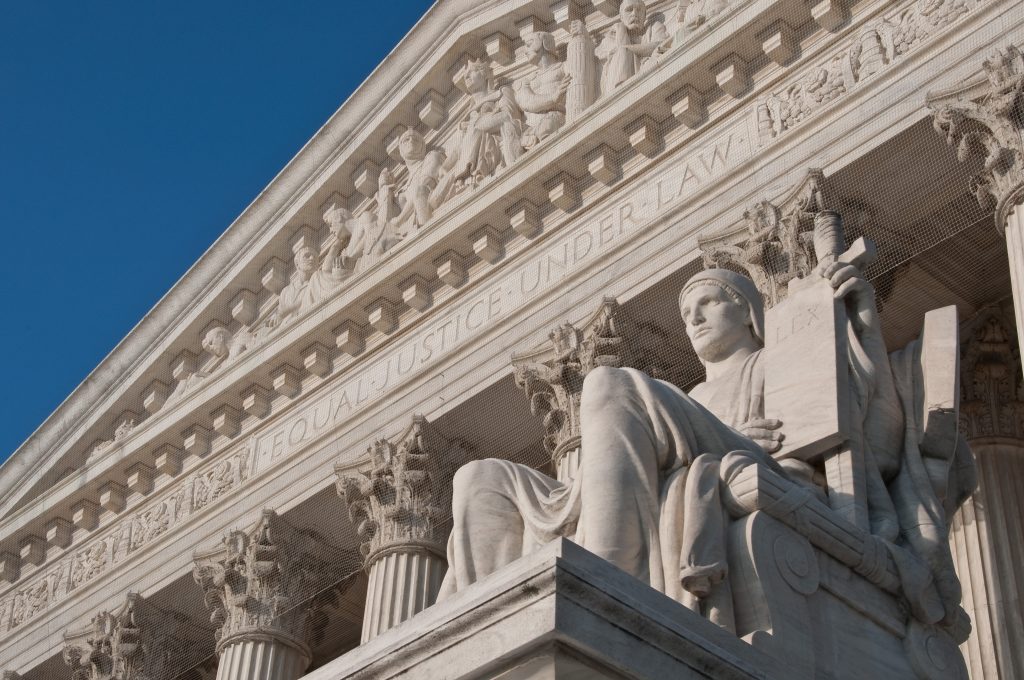
The Supreme Court Gets Espinoza Right
By Richard W. Garnett
Editorial Note: This article, originally published on the FedSoc Blog, can be found here. IRFA signed onto an amicus brief in the Espinoza case authored by Thomas C. Berg and Douglas Laycock. An analysis of their take on the ruling can be read here.
Yesterday’s Supreme Court decision in Espinoza v. Montana Dept. of Revenue is a religious-freedom and education-reform landmark. The Supreme Court re-affirmed the rule that the First Amendment does not permit governments to discriminate against religion and religious exercise.
For too long, a misunderstanding about the true meaning of church-state separation caused courts and legislators alike to insist on discriminatory treatment of religious schools and the families who choose them. In fact, however, government neutrality toward, and equal treatment of, religious schools is entirely consistent with the principle of separation of church and state. What is more, Chief Justice Roberts reminded us, it offends the First Amendment’s religious-liberty guarantee to penalize people, by withholding otherwise available benefits, for their religious choices.
The Espinoza decision should help to remove a longstanding barrier in many states to educational reform and to choice-based programs that enhance educational opportunities, especially for low-income families. For too long, state-law provisions like Montana’s, which purported to require the exclusion of religious schools from school-choice experiments, have stood in the way of reform.
Justice Alito’s concurring opinion provided a valuable, educational service by reminding readers of the unsavory history of many of the anti-funding provisions that states adopted in the 19th and early 20th centuries. Often, these provisions were the product of obvious and rank hostility toward Catholics and Catholic schools. These schools were attacked by their critics as dangerous impediments to nationalism and these attacks were themselves often inseparable from racial, ethnic, and religious prejudices. Such prejudices should play no role in debates about how best to fund the education of America’s children.
The ruling vindicates both the freedom of religion and the vital principle of pluralism in education. At a time when many religious schools are facing grave, even existential, threats as a result of current economic difficulties and coronavirus-related closures, the Court’s decision requiring fair and equitable treatment of religious schools and of families that choose them could be a much-needed lifeline.
Note: The Federalist Society is hosting Courthouse Steps Decision Teleforum on Espinoza v. Montana Department of Revenue on July 1. See here for more information.
Professor Richard Garnett teaches and writes about the freedoms of speech, association, and religion, and also about constitutional law more generally. He is a leading authority on questions and debates regarding the role of religious believers and beliefs in politics and society. He has published widely on these matters, and is the author of dozens of law-review articles and book chapters. His current research project, Two There Are: Understanding the Separation of Church and State, will be published by Cambridge University Press. Professor Garnett is regularly invited to share analysis and commentary in national print and broadcast media, and he contributes to several law-related blogs, including Mirror of Justice and PrawfsBlawg. He is the founding director of Notre Dame Law School’s new Program on Church, State, and Society, an interdisciplinary project that focuses on the role of religious institutions, communities, and authorities in the social order.
